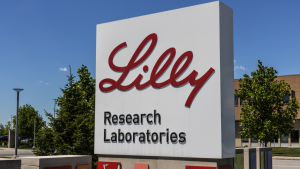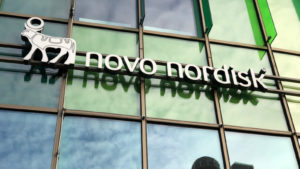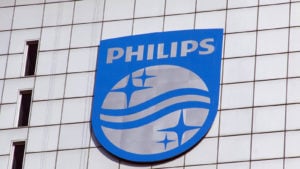
This is an amazing week to consider biotech stocks. Big news by the U.S. Food & Drug Administration (which we’ll get to momentarily) shows the benefits and outsized gains you can enjoy by choosing the right biotech stock.
Biotech companies have the potential to be big winners because of their very nature. They’re at the forefront of scientific innovation and push the boundaries of medical research, drug development, and healthcare solutions.
By investing in biotech stocks, you support and potentially profit from this groundbreaking progress. The potential for life-changing advancements and disruptive technologies can lead to growth opportunities over the long term. By aligning your investments with these innovative companies, you position yourself to benefit from their continued success and expansion.
Today, we’ll use the Portfolio Grader to look for the best biotech stocks to buy for the long term. But remember, not all of these companies will create riches tomorrow. Investing in biotech stocks means being patient in waiting for regulators to sign off on treatments, which only comes after extensive clinical trials. These stocks aren’t for everyone.
But if you want to diversify your portfolio with biotech, these are the names that give you the best chance of navigating the biotech investment waters, you may uncover hidden treasures and potential market-beating returns in the long run.
Eli Lilly & Co. (LLY)

Let’s get right to the good stuff. Eli Lilly & Co. (NYSE:LLY) has been on many investors’ radars for a few weeks now in anticipation of the FDA ruling on its diabetes drug, Mounjaro, to treat obesity.
On Wednesday, they were finally rewarded for their patience. The FDA signed off on the drug, which will now be called Zepbound and priced at about $1,060 for a month’s supply. Lilly will also continue to sell Mounjaro as a diabetes treatment. Zepbound is expected to be available to patients by the end of the year.
LLY stock jumped by 3% in after-hours trading, which isn’t a lot until you consider that many anticipatory gains were already baked in, LLY stock was up nearly 70% this year.
But that doesn’t mean it’s too late to get on board. This train is just leaving the station. Zepbound is expected to bring $25 billion a year to LLY’s coffers.
That’s why Lilly shareholders are celebrating today. LLY stock has an “A” rating in the Portfolio Grader.
Novo Nordisk (NVO)

Novo Nordisk (NYSE:NVO) is a direct competitor to Lilly, but this is a stock that is also keeping a close eye on regulators hoping to expand the scope of its obesity drugs.
The FDA gave Novo Nordisk’s obesity drug, Wegovy, approval in 2021, and this year NVO began selling it in the U.K. Its diabetes drug, Ozempic, also looks like a promising treatment for weight loss.
According to The Telegraph, Goldman Sachs predicts that Eli Lilly and Novo Nordisk will together capture 80% of the global weight loss market by 2030.
“The chronic weight management market is undergoing an inflection, in our view, with potential for solid growth ahead and a peak opportunity that, by our estimates, could ultimately yield some of the highest grossing drugs of all time,” Chris Shibutani, the bank’s senior biopharmaceuticals analyst said.
I’m not worried about Eli Lilly taking the wind out of Novo Nordisk’s sails. There are enough profits to go around. If anything, there were concerns before this week that there wouldn’t be enough approved obesity drugs.
NVO stock gets an “A” rating in the Portfolio Grader.
iCAD (ICAD)

iCAD (NASDAQ:ICAD) is a biotech company working to treat cancer. The company provides detection and radiation therapy solutions that help medical providers find and treat cancer earlier.
It uses artificial intelligence-powered analysis tools that give doctors a better chance of identifying cancerous cells, having signed a 20-year agreement with Google Health to integrate Google’s AI technology into its mammography platform.
And it’s working with Radiology Partners, the nation’s largest radiology practice, to expand its reach.
Revenue for the second quarter was $5.9 million, down from $7.5 million a year ago. But the company’s losses narrowed from $3.1 million and 12 cents per share a year ago to $1.8 million and 7 cents per share.
The partnership with Google Health makes ICAD an interesting stock. It has a “B” rating in the Portfolio Grader.
Koninklijke Philips (PHG)

Koninklijke Philips (NYSE:PHG), also known as Philips, is a Dutch health technology company. Its products include razors, toothbrushes and infant products. From a biotech standpoint, it also has smart products designed to help you sleep and products for people with sleep apnea.
While the stock’s fallen over the last five years, it’s seen a rebound in 2023, posting a 33% gain. Some of that increase can be attributed to the company’s new partnership with Exor, a European investment company with shares in several other prominent European companies.
The Philips partnership means Exor has a 15% stake, with the option to push it as high as 20%.
Earnings for the third quarter showed sales increasing 11% yearly, and cash flow increased from 180 million euros a year ago to 489 million euros this year.
The company also increased its outlook for the year to 6% to 7% sales growth.
PHG stock gets a “B” rating in the Portfolio Grader.
Merck & Co. (MRK)

Merck & Co. (NYSE:MRK) is another pharmaceutical company. Its top products include Keytruda, a cancer immunotherapy drug, and Gardasil, used to treat human papillomavirus (HPV).
It recently announced a $4 billion deal with Japanese drug developer Daiichi Sankyo to commercialize three of that company’s antibody drug conjugate candidates intended to treat solid tumors.
Merck says the agreement could bring in billions of dollars annually. That’s good news for a company already bringing in billions. Q3 earnings included revenue of $16 billion, up 7% from a year ago.
The company raised its full-year outlook to a sales range between $59.7 billion and $60.2 billion, and EPS between $1.33 and $1.38.
MRK stock gets a “B” rating in the Portfolio Grader.
BeiGene (BGNE)

BeiGene (NASDAQ:BGNE) is a Chinese biotech company dedicated to making impactful, affordable treatments. Its focus is primarily on drugs for hematology and solid tumors.
The company has an array of cancer models to help it select targets and to screen and evaluate agents that show promise for a potential treatment.
BeiGene has more than 30 potential treatments in various stages of clinical trials in the U.S., Australia, China, Japan and Switzerland. Among its successful drugs is zanubrutinib, which treats lymphoma and leukemia and is sold under the brand name Brukinsa.
Earnings in the second quarter included revenue of $554 million, up 82% from a year ago. The company said Brukinsa accounted for $308 million of that total, an increase of 139% from a year ago thanks to the launch of Brukinsa in the U.S. and Europe. This is definitely one of the biotech stocks to watch.
BGNE stock is up 15% in the last month and gets a “B” rating in the Portfolio Grader.
Exact Sciences (EXAS)

Exact Sciences (NASDAQ:EXAS) is a biotech company best known for its screening tests, including Cologuard (for colorectal cancer detection) and Oncotype DX (for breast and prostate cancer detection).
The company has a partnership with OncXerna Therapeutics to leverage that company’s AI platform to help detect cancer. The platform’s machine learning helps medical providers choose a treatment tailored to each patient.
Earnings for the third quarter included revenue of $628.3 million, up 20% from a year ago. Of that, screening revenue of $472 million increased 31% from a year ago.
Exact Sciences raised full-year guidance for revenue in the range of $2.457 and $2.486 billion, an increase from its previous guidance that had a range of $2.441 billion and $2.466 billion.
EXAS stock has a “B” rating in the Portfolio Grader.
On the date of publication, Louis Navellier had long positions in LLY and NVO. He did not hold (either directly or indirectly) any other positions in the securities mentioned in this article.
The InvestorPlace Research Staff member primarily responsible for this article did not hold (either directly or indirectly) any positions in the securities mentioned in this article.






